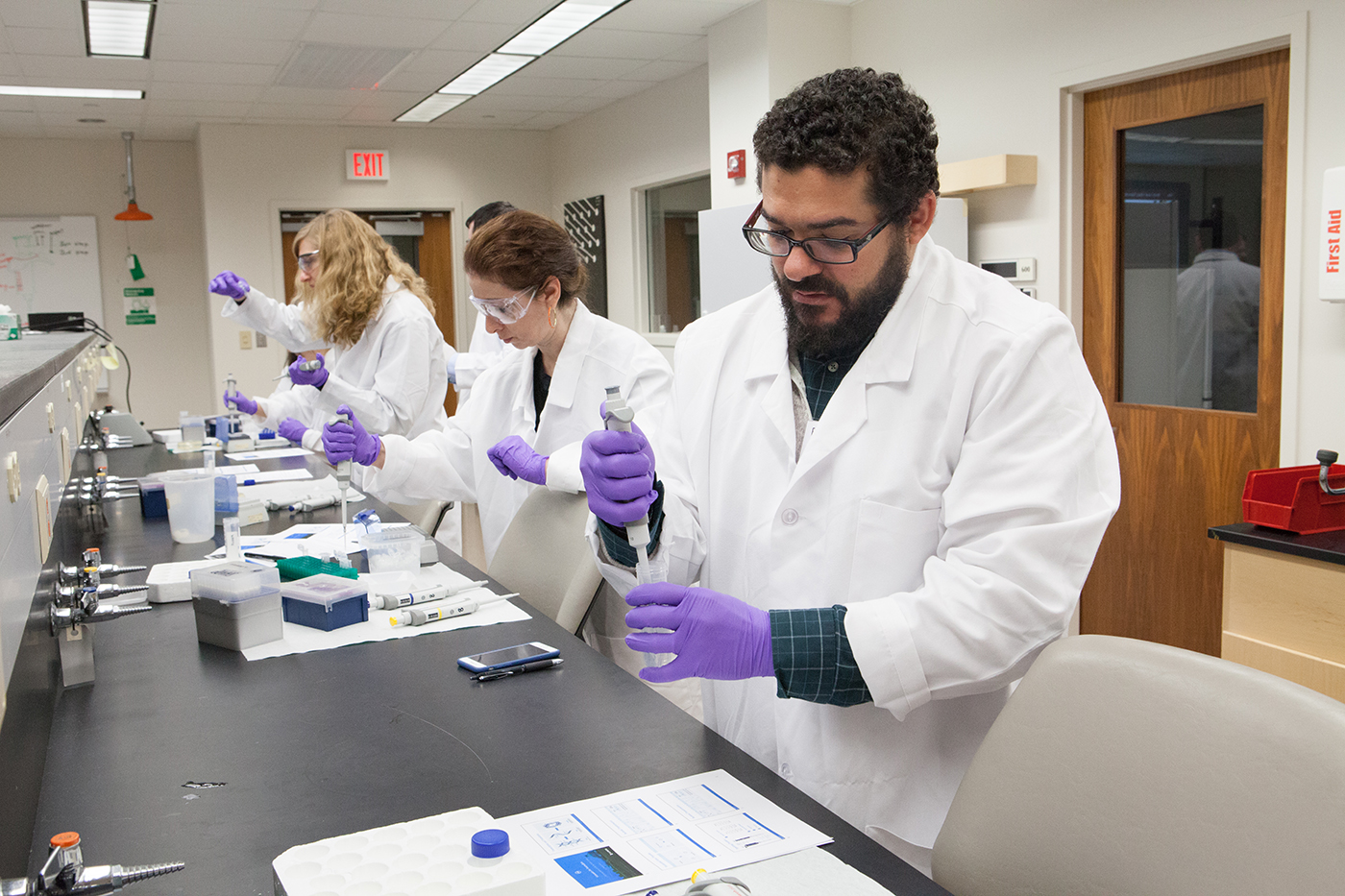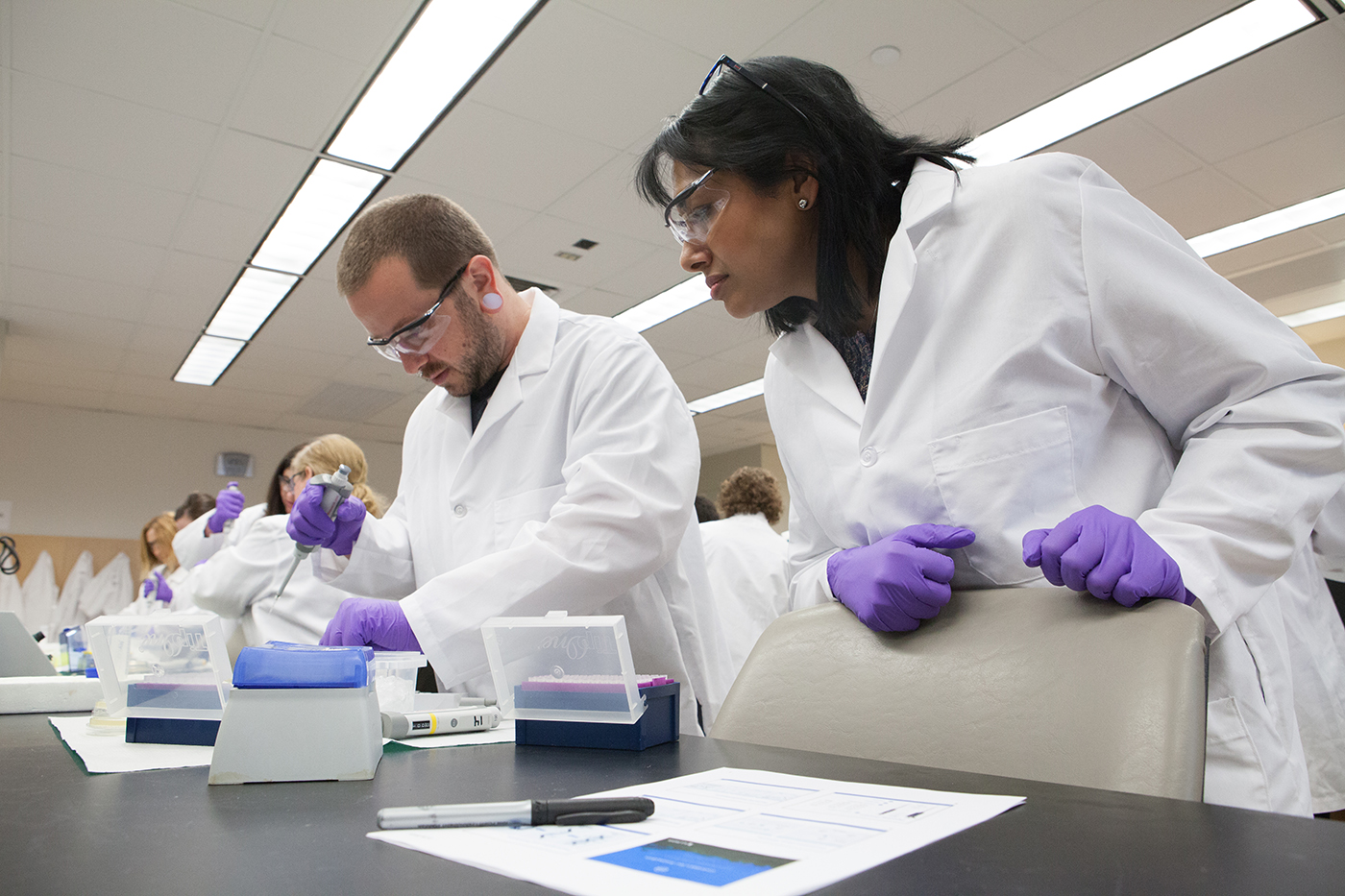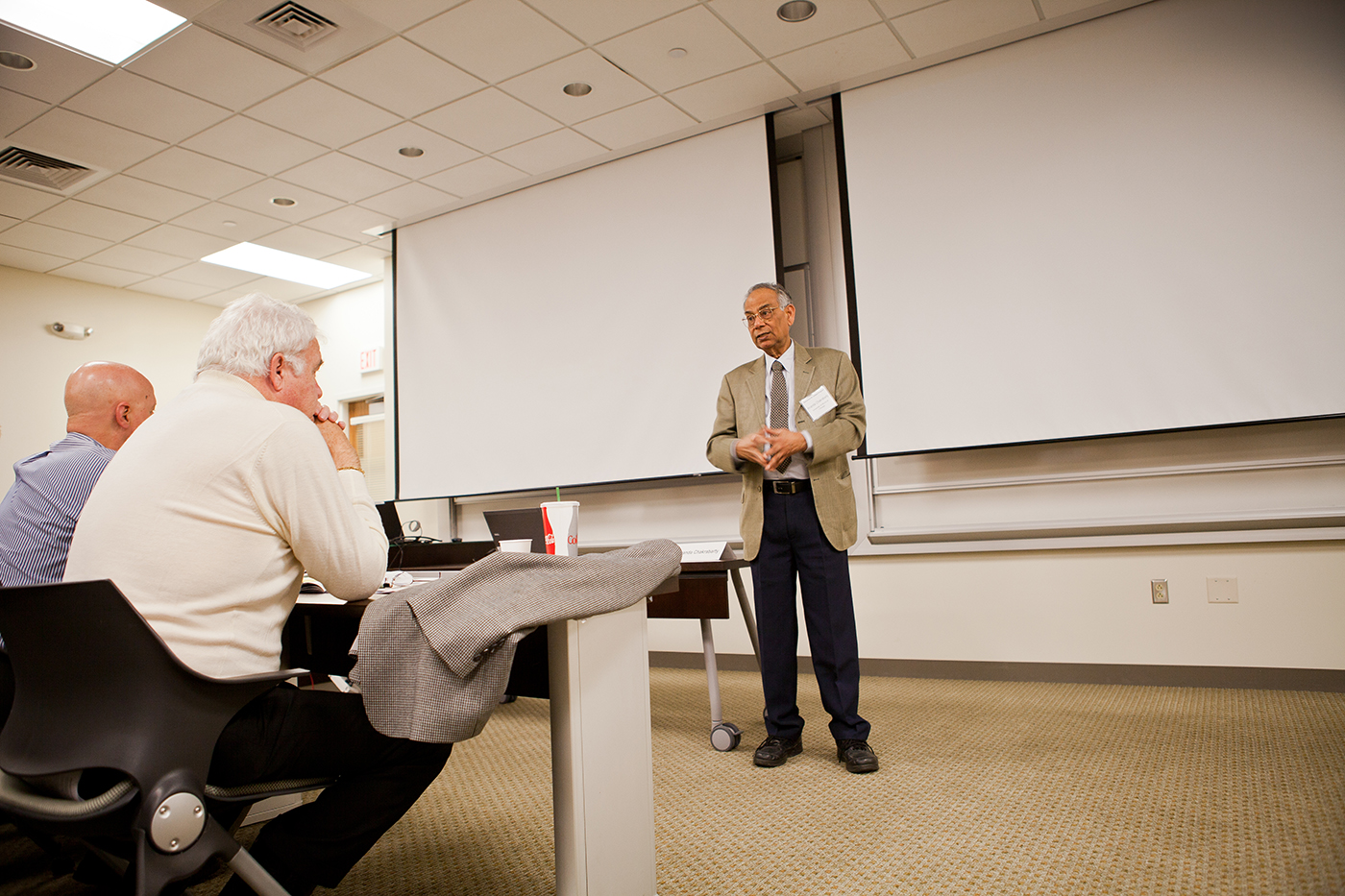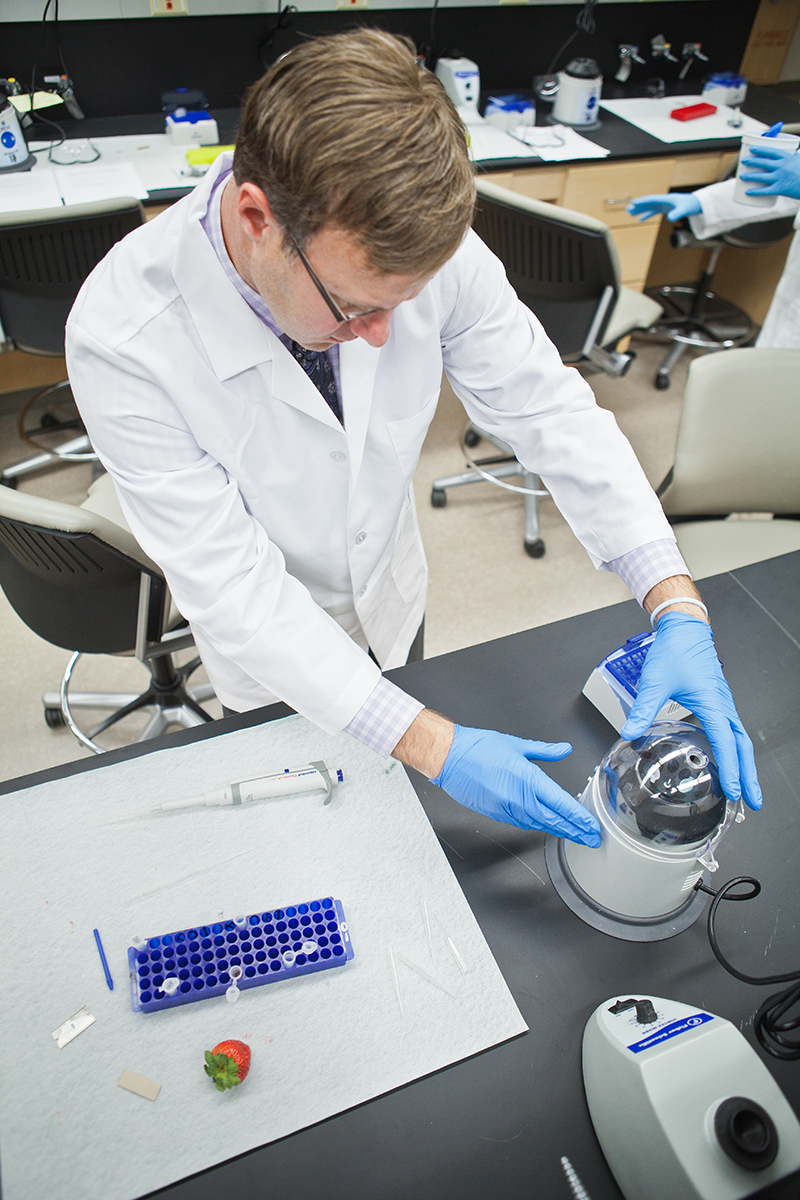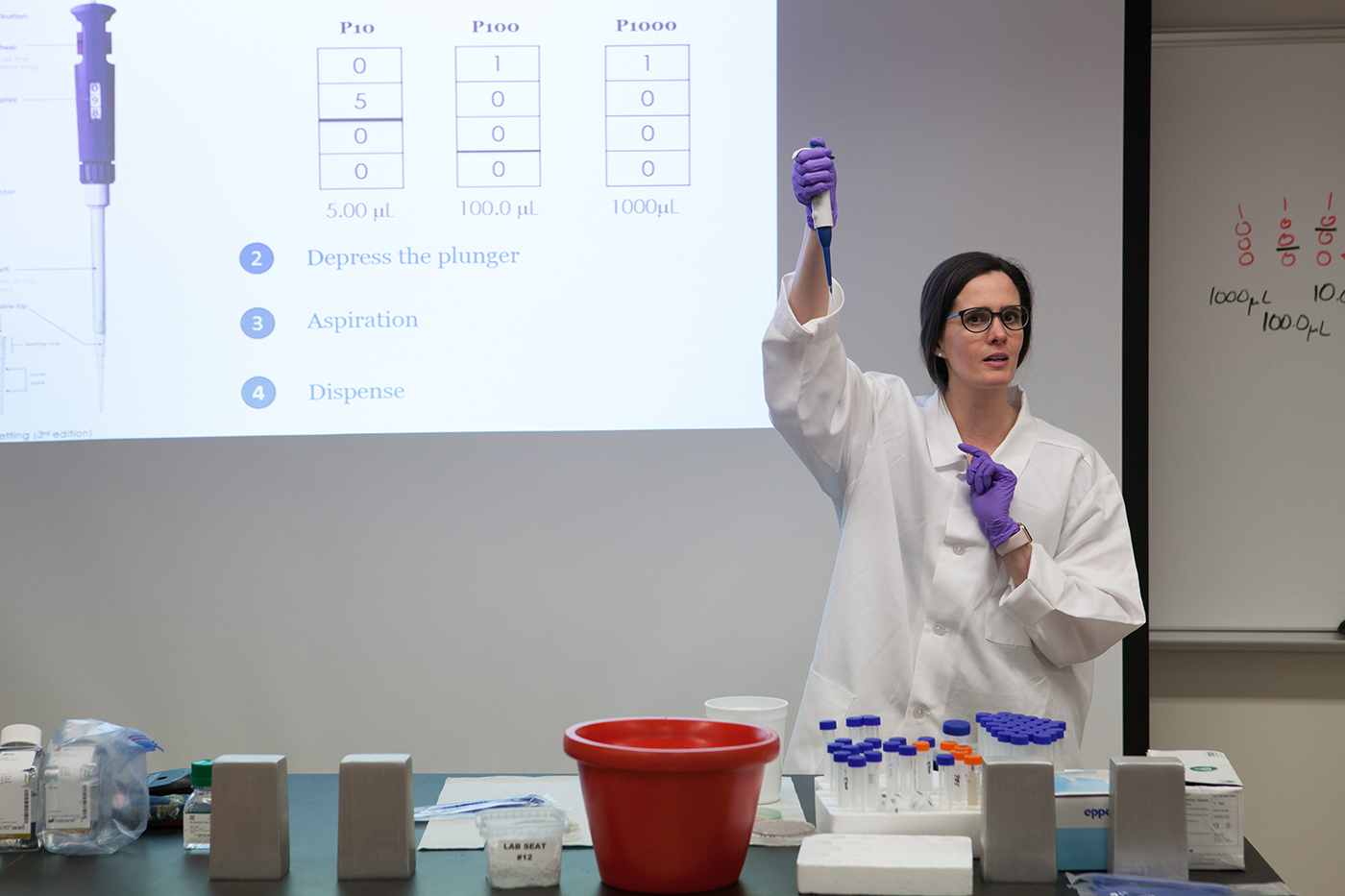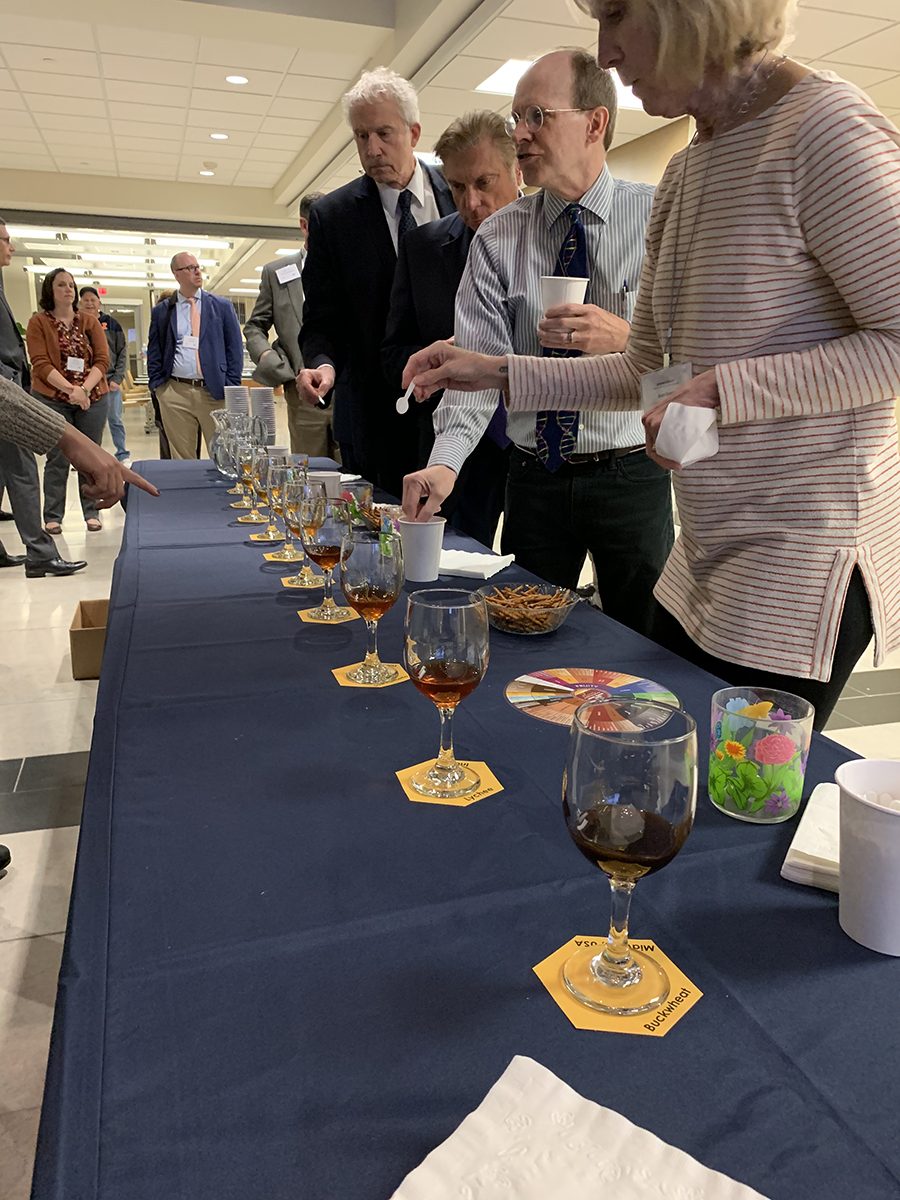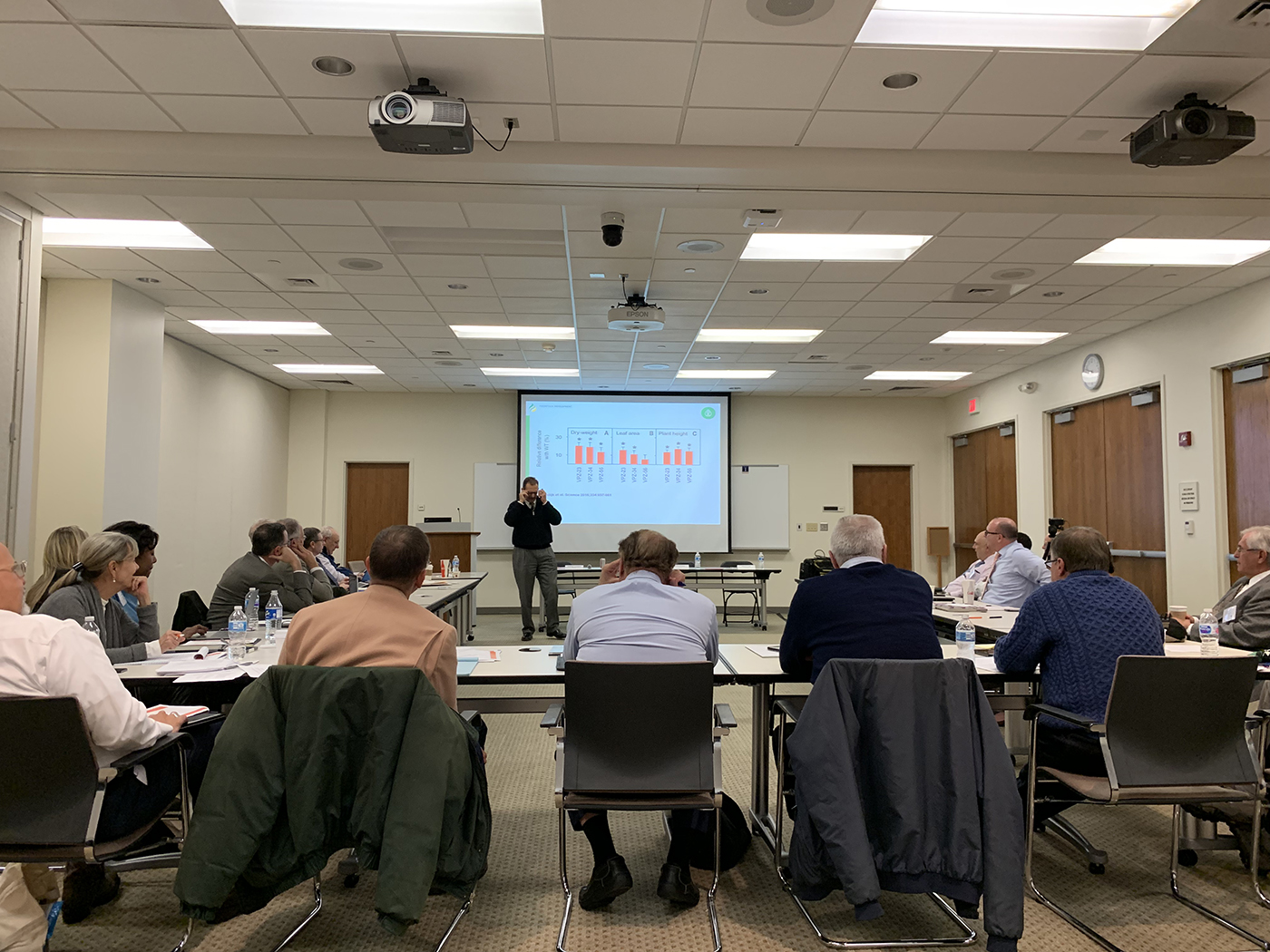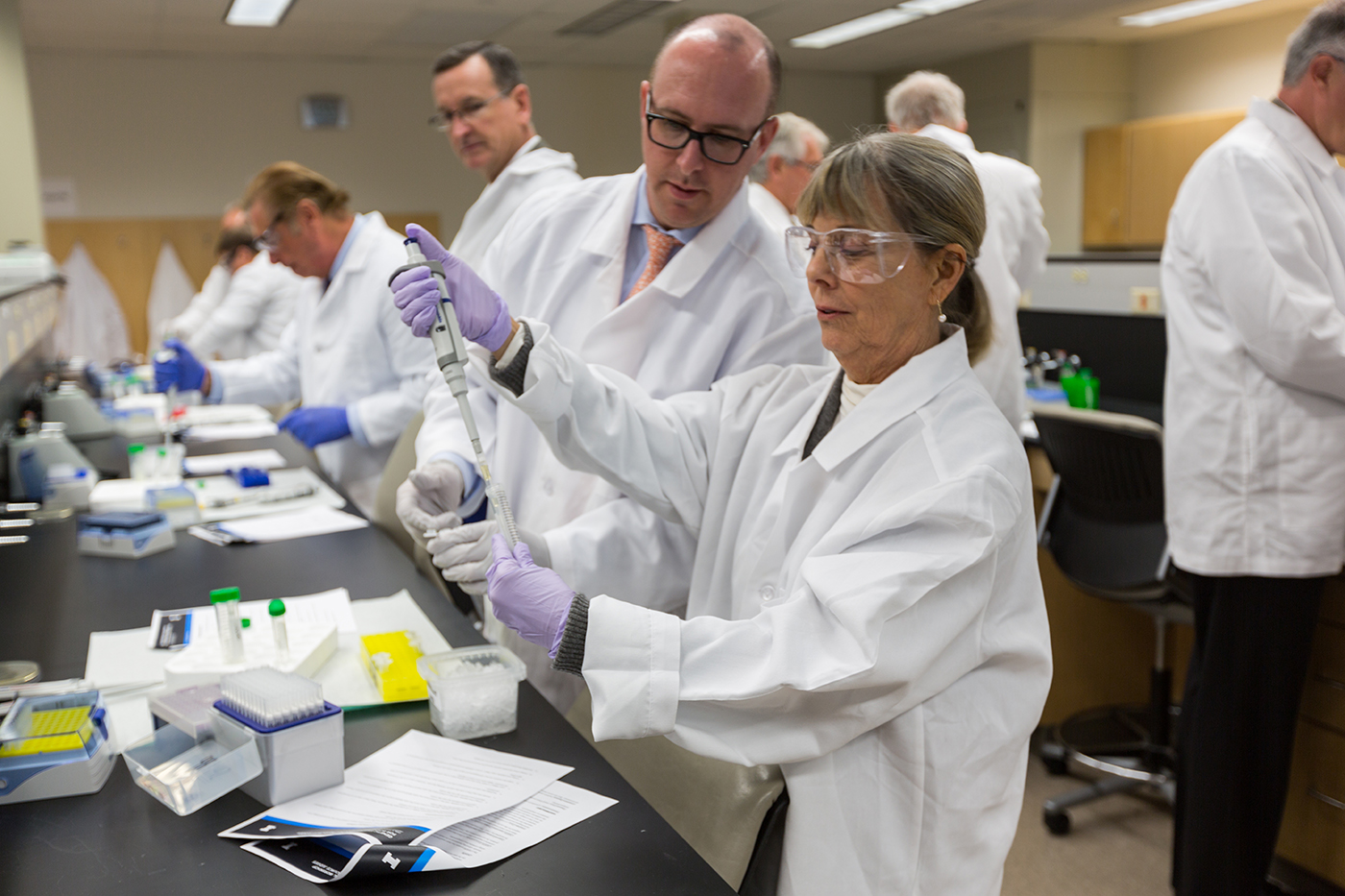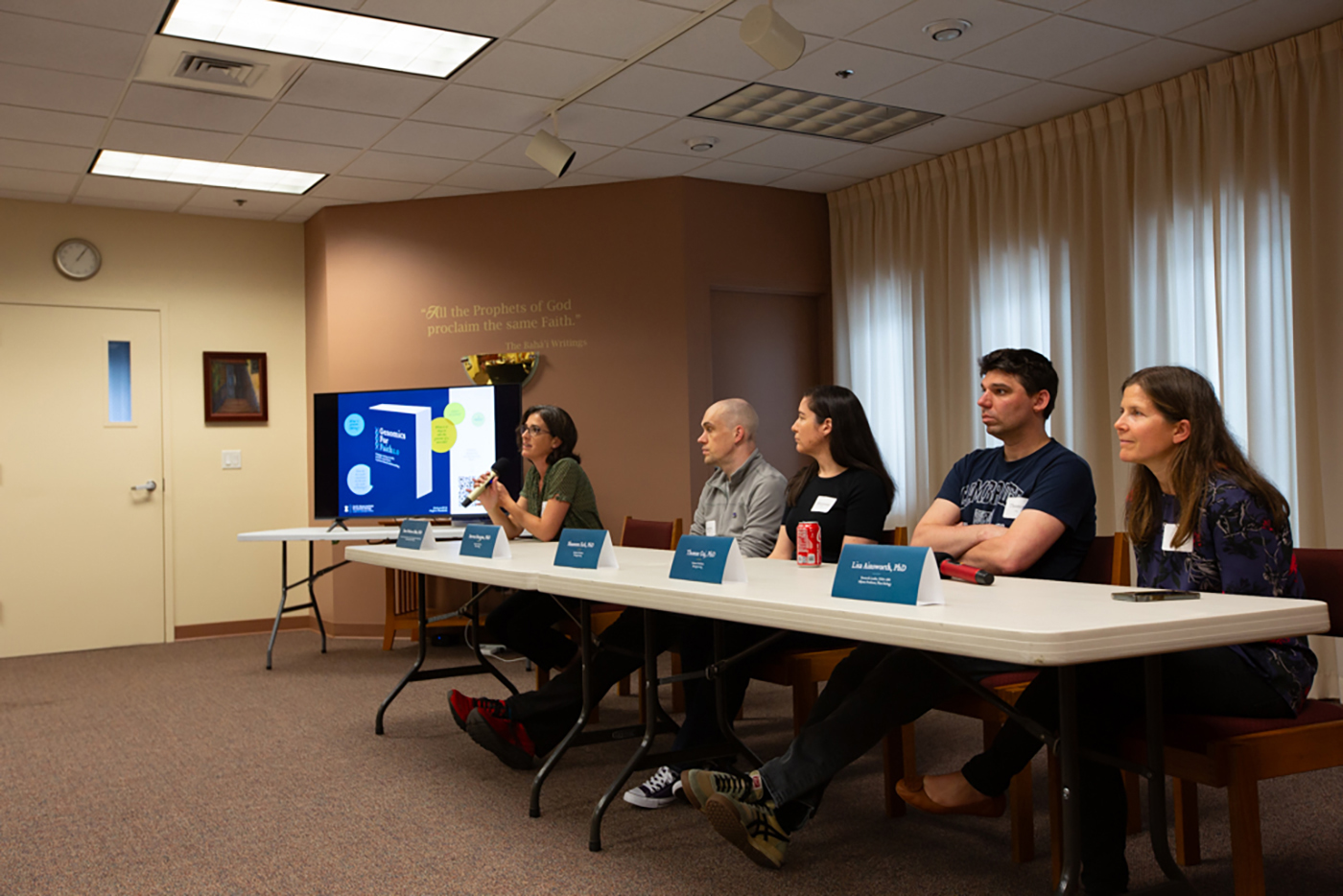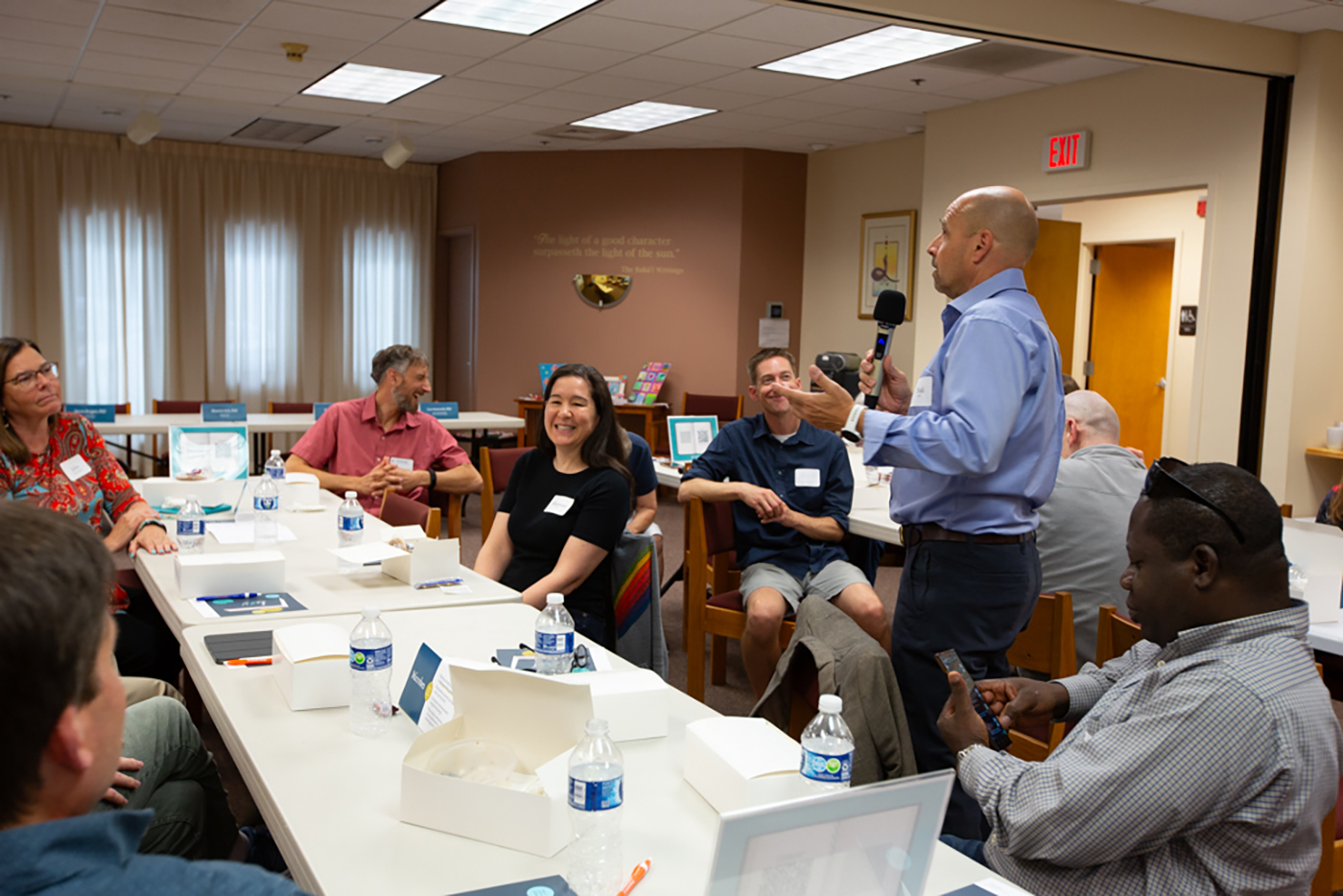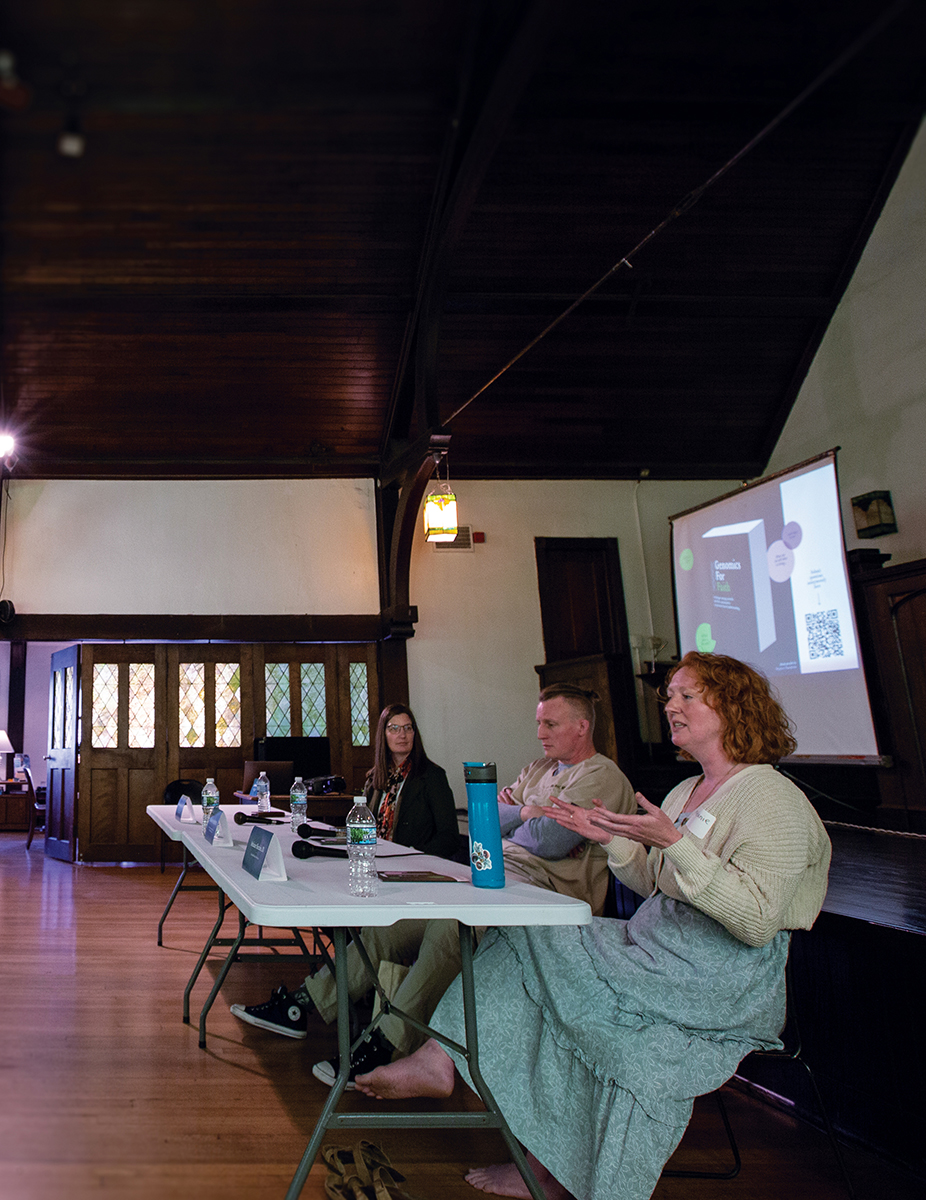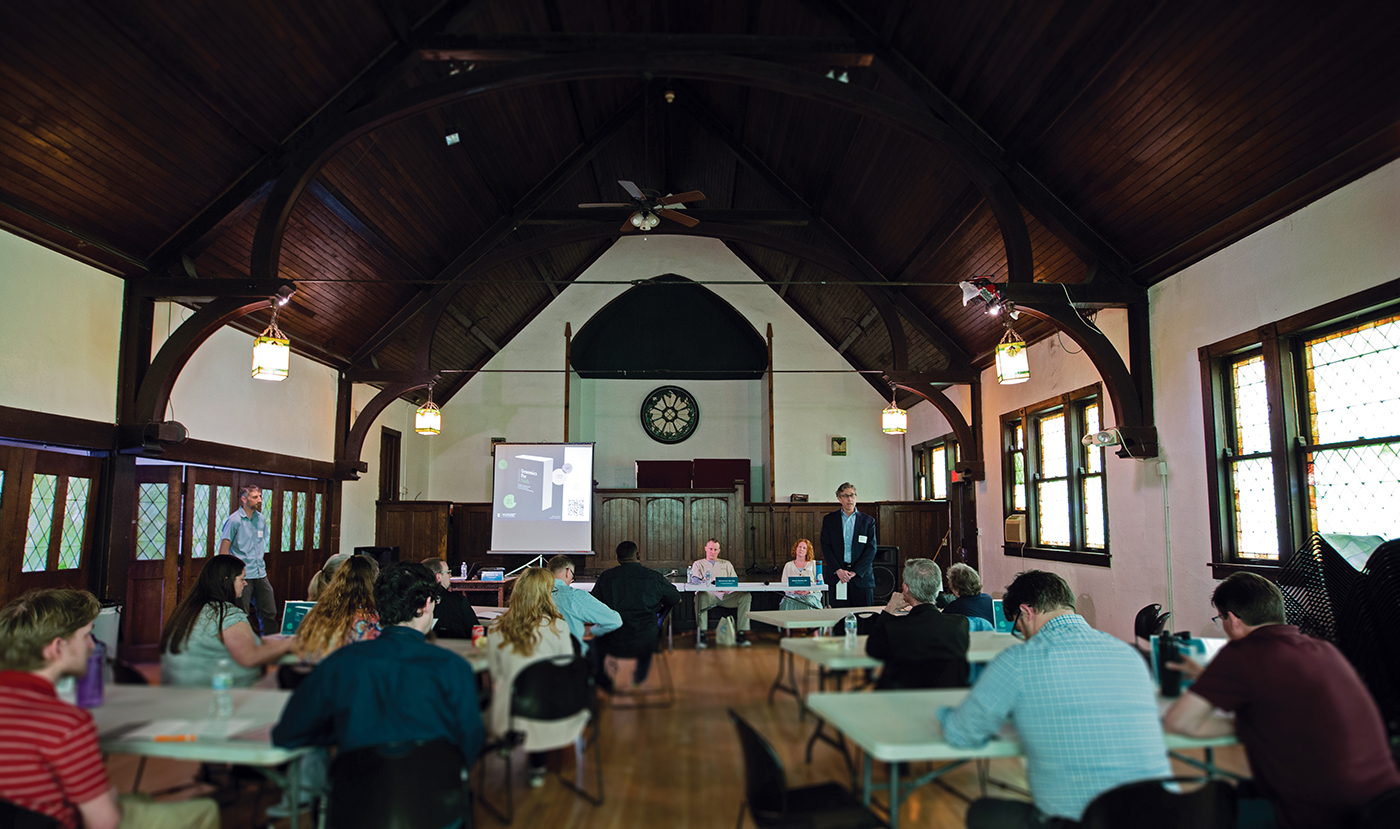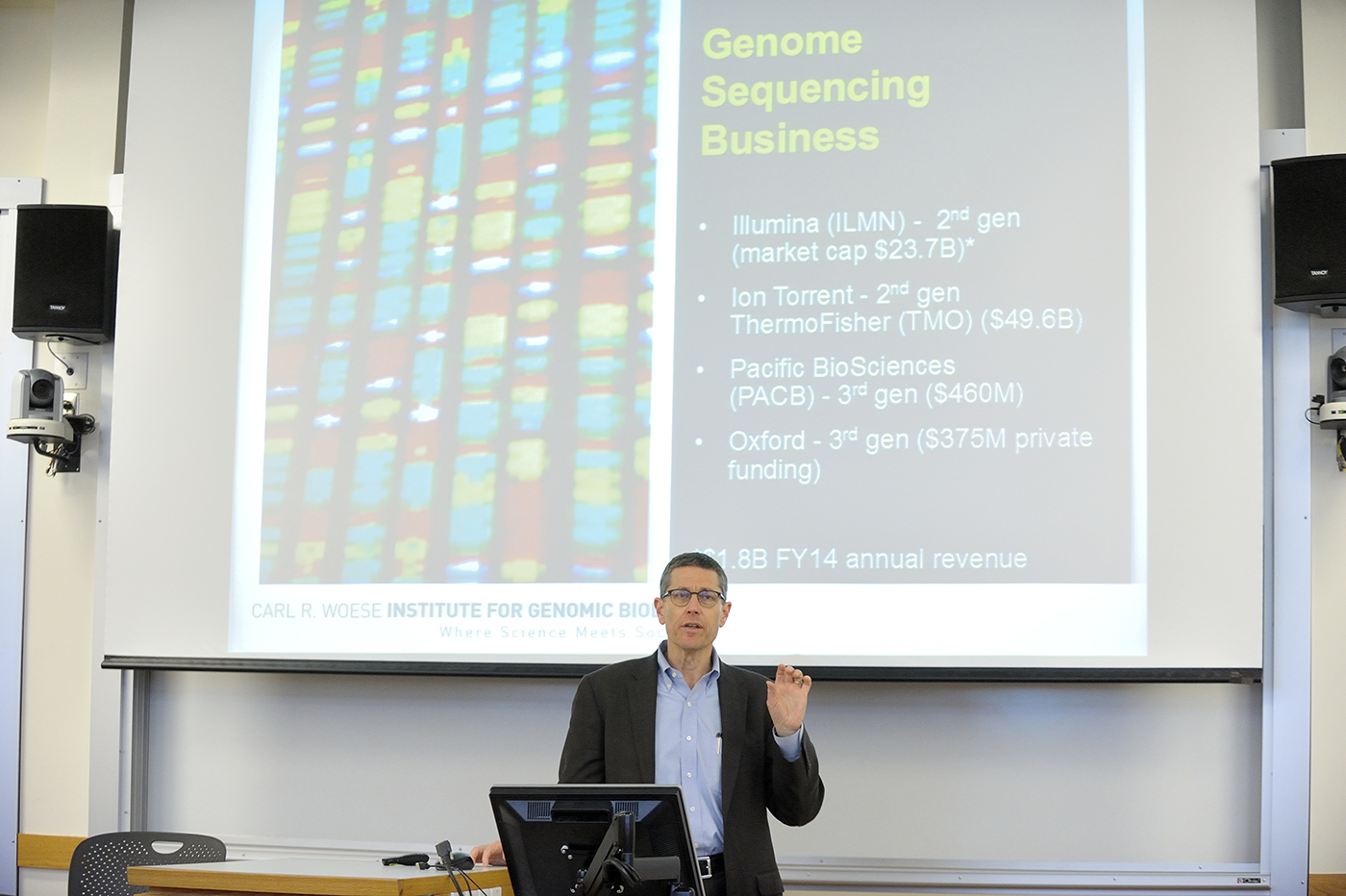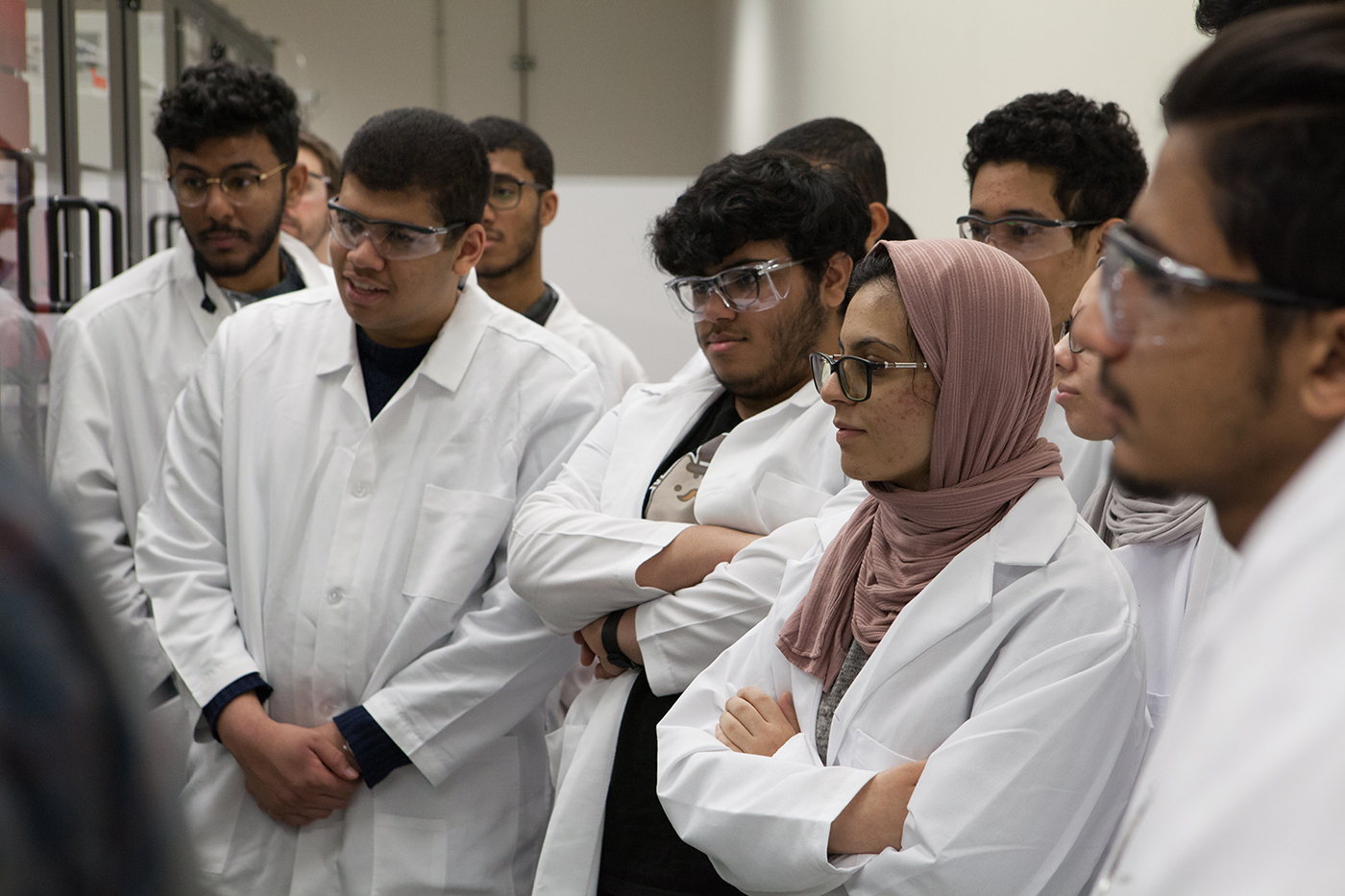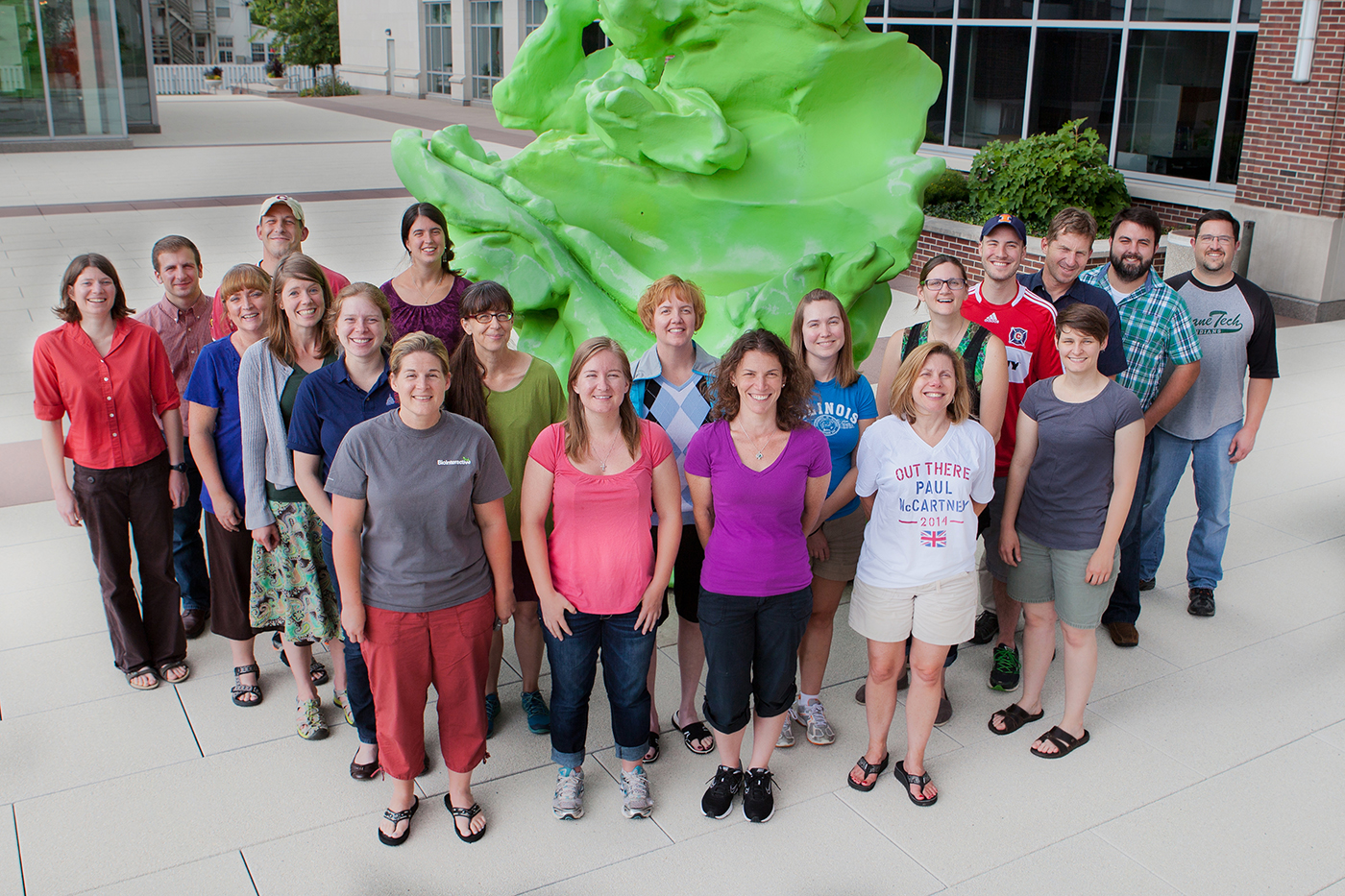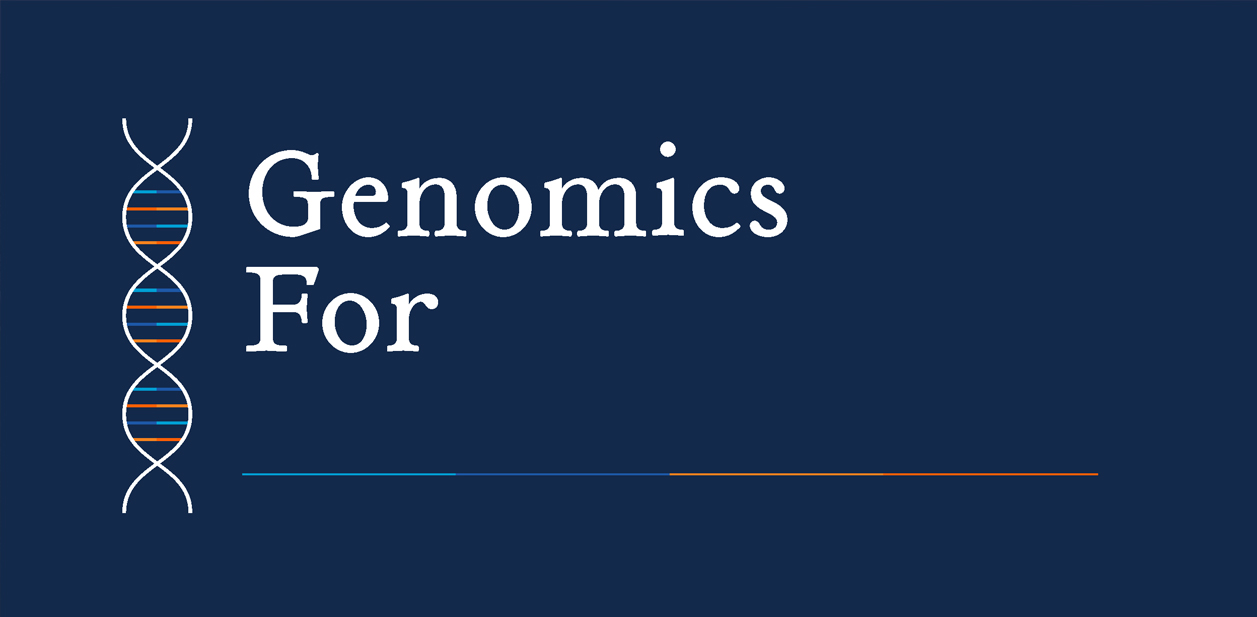
Genomic research has an ever-growing impact on areas such as health and agriculture, yet most members of the public do not have access to the information they need to understand new findings and evaluate how they might be affected by them, both personally and professionally. To address this need, the IGB is designing and implementing a series of educational programs, entitled “Genomics for” TM, that center the goals and interests of specific demographic or professional groups. Each program explores the basic science concepts of genomics and how genomic research impacts that particular group.
- Genomics for Faith
-
Faith leaders provide crucial guidance for the communities they lead, but may not have easy access to information about scientific topics or a neutral space to ask questions about science. Our Genomics for Faith workshop series, made possible by funding from the Wayfarer Foundation, provides an opportunity for faith leaders to engage directly with scientists to discuss scientific knowledge as well as its societal value and limitations. Our new workshop series, Genomics for Faith, invites members of every faith community to discuss how science informs and impacts our lives, and how to navigate the intersection of personal beliefs and values with public information.
Related articles:
Genomics for Faith kicks off, connecting scientists and faith members in the community, IGB
Genomics for Faith discusses gene editing with local faith communities, IGB
Genomics for Faith explores potential and ethics of stem cell research, IGB
‘Genomics and Faith’ connects scientists and people of faith in C-U, WILL
Scientists and faith leaders discuss gender at Genomics for Faith, IGB
- Genomics for Journalists
-
Imagined as a sort of science “boot camp” for reporters, Genomics for Journalists is a multi-day workshop designed to arm journalists—including those without deep backgrounds in science—with the knowledge and context they need to cover newsworthy science, health, and environment issues with confidence. Genomics—the study of collections of genes, their structure and function, and how they work together within organisms—is increasingly central to advances in health, agriculture, and environmental science, as well as law enforcement and criminal justice.
Genomics for Journalists is for working reporters and covers the basic science of genomics, including exploration of advances in the field that are changing the way diseases are diagnosed and treated, novel crop varieties are developed, forensic evidence is interpreted, and new materials and fuels are being produced.
The workshop includes faculty presentations, panel discussions, networking opportunities, and hands-on scientific laboratory experiences. Topics covered include such items as genomics, genealogy, and criminal justice; genomic editing in health, medicine, and agriculture; direct-to-consumer genetic testing; diet, microbiome, and health; ecosystems and environmental genomics; and the ethical, legal, and social issues raised by genomic advances. The workshop also holds lab exercises featuring hands-on experience with editing bacterial genomes.
Genomics for Journalists was offered jointly by SciLine, an independent, nonpartisan, philanthropically supported service hosted by the nonprofit American Association for the Advancement of Science (AAAS), and the IGB.
For more information about SciLine visit their about page.
- Genomics for Judges
-
Genomic research will eventually uncover a complete picture of how our genetic information, acting in concert with our experiences, influences our behavior, our risk for disease, and our responsiveness to medical treatments. These are all subjects of great academic and personal interest, but what happens when they are connected to a question of legality? When considering whether an individual’s genetic inheritance can be blamed for criminal behavior, or how information on disease predisposition should be used, who is qualified to testify, and what kinds of knowledge are needed to make sound judicial decisions?
The Supreme Court of Illinois and its Administrative Office of the Illinois Courts, in coordination with members of the Illinois Judicial Conference Committee on Education, appointed by the Supreme Court, are responsible for facilitating educational resources for Illinois judges, including those pertaining to sciences in the law. The Carl R. Woese Institute for Genomic Biology (IGB) at the University of Illinois had the unique opportunity to work with the AOIC in offering a new seminar, “Genomics forTM Judges,” that was designed to prepare judges to grapple with legal questions involving DNA sequencing and analysis, as well as related technologies, in the courts today and in the future.
Related articles:
- Genomics for Prosecutors
-
Become immersed in a rich scientific experience that includes the structure and function of DNA, how gene function is influenced by the environment, and how genome sequences are analyzed. Other sessions explore intersections between genomics and legal issues, including the relationship between genetics and criminal behavior, and the accuracy and admissibility of DNA evidence. As part of a simulated exercise, prosecutors will be given the opportunity to work in a lab and to extract DNA .
- Genomics for Teachers
-
The University of Illinois Carl R. Woese Institute for Genomic Biology (IGB) and Illinois-Indiana Sea Grant hosted a Genomics for Teachers workshop, discussing developments in genomic biology and sharing how educators can incorporate these new developments into their classrooms.
Educators learned about genomic biology through lectures, discussion, and demonstrations by leading biologists and researchers, as well as connecting their learnings to the Next Generation Science Standards (NGSS). Topics included invasive species, fish, and water quality.
Educators attending the Genomics for Teachers workshop received 6 CPDUs as well as a stipend for attendance. Educators had the opportunity to earn an additional stipend for the completion of a service learning project.
Gallery
